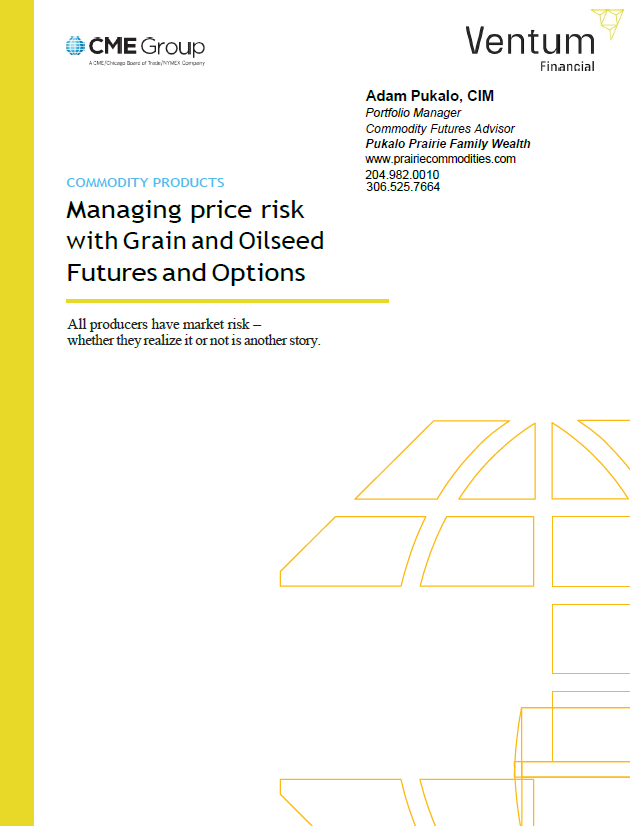HEDGING VS SPECULATING
EDUCATION
The main difference between hedging and speculating is speculators aren’t protecting anything. Not everybody that trades grain or livestock futures and options are farmers. Anybody around the world that wants to profit from a direction in grains (or livestock, currencies etc) can trade them. Typically, speculators just want to make money on any direction the market is going on any type of asset. It might be somebody who thinks gold is going to increase because of market uncertainty so they take a long gold futures position. Or maybe somebody believes oil will decline because there is an oversupply so they take a short oil futures position. Speculators may hold their positions for any length of time from a minute to months depending on their trading philosophy.
Hedging is a way to control the risks associated with volatility in grains, livestock and currencies etc. The easiest way to think of hedging is an analogy using insurance. Every year you pay a premium to buy house insurance to protect it from a negative event. Similarly, you can use options and futures to do the same thing to protect from declining prices of your grains and livestock.
You might be thinking…how does this differ from crop/livestock insurance that already exists?
There are two main differences:
1. Flexibility
You can sell your protection at any time because it is traded on an exchange called the CME Group like how stocks are traded on the Toronto Stock Exchange.
Coming back to our car insurance analogy, imagine you could sell your house insurance back in nine months because you believe it isn’t needed anymore and you can get a certain percentage of your premium back.
Wouldn’t it be nice to have that flexibility?
If you find your cash price of your grains or livestock increasing and you may not need your protection on anymore, you can sell it back at any time.
2. Defined Risk
The premium you pay for your house insurance is the maximum amount you’ll lose if nothing happens to your house. Same thing for when you buy option protection. When you buy option protection the maximum amount you can lose is the premium you pay. Many people have heard of the dreaded “margin call” from futures and buying options address this concern. You can now have the protection you want and have your total risk defined to just the premium you pay.
Why hedge using options and futures?
- Flexibility over other insurance programs
- Defined risk with no futures contract margin calls
- Fix consistent and stable cash flow
- Minimal capital requirements
- No production commitment or delivery risk
Download our Hedging Guide
Thank you for contacting us. We'll get back to you as soon as possible.
Please try again later.




